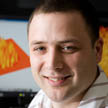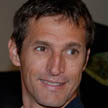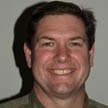I’m a Scientist is like school science lessons meet the X Factor! School students choose which scientist gets a prize of $1000 to communicate their work.
Scientists and students talk on this website. They both break down barriers, have fun and learn. But only the students get to vote.
This zone is the Boron Zone. It has a range of scientists studying all different topics. Who gets the prize? YOU decide!









That’s a great question. When we apply for money to carry out our research, there is usually a selection criterion called “national benefit”, which is exactly this question. As a physicist working on the theory of ultra-cold gases, my work falls in the category “science for science’s sake” – we don’t really know if it will help people or not. But – this is the case for a lot of things that scientists have done in the past – a lot of fantastic discoveries happen by accident by scientists working on something fairly random!
But – having said that – ultra-cold gases have the potential to be used in measurement devices that are far more accurate than what we have today. In particular – they could be used to help eg submarines track where they are (not easy to get a GPS signal underwater!), or to search for unusual geological formations that indicate coal/oil/ore deposits are in the vicinity.
0
I dont have trouble with the “National Benefit”. Most of my research falls into the category that is referred to as “applied research” that is we try to solve problems that are present in society rather than cutting edge science. My research aims to help people help the environment. I look at how we can manage human use such as ports and marine creatures, I look at how we can minimise pollution into the oceans and how we can use resources like fish sustainably.
0
As humans we have a basic need to connect to the natural world. E O Wilson described this as “the urge to affiliate with other forms of life” in his book “Biophila” (1984).
Our current way of life (85% of Australians in in cities) separates us from many of our traditional connections with nature. However the need is still there. As city dwellers most of us tend to interact with nature in quite controlled ways – having pets, gardening, going fishing are common examples. Unfortunately for many of us our understanding of the broader natural world is limited or sensationalised (e.g. Deadly Sixty).
I look to help people understand the wildlife that surrounds them (e.g. possums, parrots, snakes, insects, spiders). This is done by identifying the animal, explaining details about it – whether it is dangerous, where it lives, whether it is a pest and what needs to be done about.
The majority of animals we are asked about – are harmless and we are able to explain this. In the process we look to point out that these animals are a normal and very important part of our world. Without them many of the biological systems we rely on would fail (clean air, clean water) and the planet would be a poorer place as a result.
0
For an astronomer this is often a hard question to answer, not because we do not help people, but because we often do in unexpected ways. I think of the answer to this question in two ways: the philosophical and the technical.
The philosophical answer is that astronomy helps us answer some fundamental philosophical questions, such as “How did the Universe begin?” or “Are we alone in the Universe”. These kinds of questions have inspired and fascinated people throughout the ages.
The technical answer is that astronomers develop sophisticated equipment to do their work, and sometimes this has tremendous benefits for society. Two great examples are: medical imaging techniques and equipment that was developed by astronomers to make high-quality images of the night sky; and the Big One, wireless internet technology (as used in phones, computers, etc) was developed by astronomers to enable big radio telescopes to be able to communicate with each other and be moved around at the same time (they were trying to detect black holes at the time).
0